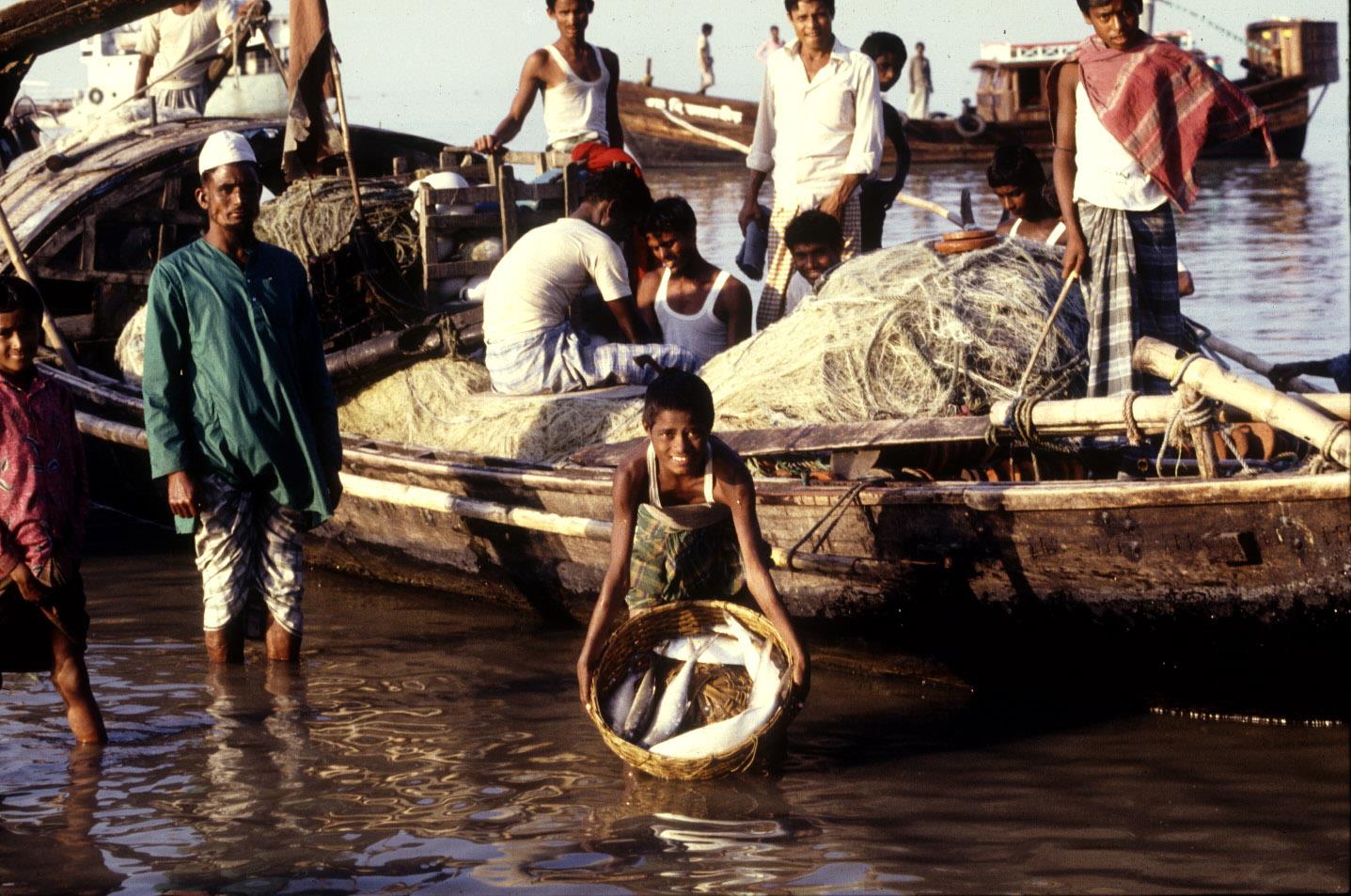Asia and the Pacific must play a leading role in meeting the SDGs to eliminate global hunger and malnutrition
Empowering smallholders and rural women and providing social protection are key to achieving food security in the region

Strengthening the capacities of smallholders, pastoralists, landless and marginal farmers and fisher folks will offer them the opportunity to improve their incomes and food security. Fisher folks on their traditional vessel in Bangladesh.
©Photo: ©FAO/E. Amalore
10 March 2016, Putrajaya, Malaysia - While the Asia-Pacific region has shown remarkable progress in reducing poverty and hunger during the last 25 years, it can lead the world in the complete eradication of these scourges within the next 15 years, FAO's Regional Conference for Asia and the Pacific heard today.
During a keynote address to 46 Asia-Pacific Government Ministers and Heads of Delegation, FAO Director-General, José Graziano da Silva, acknowledged that the Asia-Pacific region had achieved the largest reduction in the number of undernourished people by some 236 million, and reduced the proportion of hunger by 50 percent in the last 25 years (24 percent in 1990-92 down to 12 percent in 2015), thus meeting the Millennium Development Goal hunger target.
"But we still have much work to do," Graziano said. "This region has more people than any other still suffering from hunger with 490 million who still do not have enough to eat. In fact, the region is home to almost 62 percent of the world's chronically hungry people."
Child stunting is also a problem in the region, with rates in some countries higher than 40 percent. "At the same time, childhood obesity in the region has also increased, with some 18 million overweight children below the age of five," he added, while pointing out that adult obesity is also a problem in many countries, particularly in the Pacific Islands.
Asia-Pacific can lead the way to Zero Hunger
The recently adopted 17 Sustainable Development Goals (SDGs) - and especially the first two relating to eradication of poverty and hunger - "are the most important and ambitious commitments ever made in the history of the United Nations," Graziano said. "In fact, they are two enormous challenges. But the latest results show that the Asia and Pacific region is on the right path in trying to overcome them."
The Conference has heard that the Asia-Pacific region can lead the way to zero hunger by taking a multidimensional approach and in particular by empowering the hundreds of millions of smallholders, pastoralists, landless and marginal farmers and fisher folks while providing social protection as a safety check. The empowerment of women in rural areas would go a considerable way to achieving food security.
"Strengthening the capacities of these target groups - to link to modern, pro-poor and inclusive value chains would offer them the opportunity to increase their agricultural output, improve their incomes and food security and contribute to rural economic growth," Graziano said.
FAO will continue to support the region's efforts to eradicate hunger and malnutrition
In Asia and the Pacific, FAO has four regional initiatives which will continue to be the focus of its work, centered on achieving Zero Hunger, rice production, blue growth (including aquaculture - where the region is responsible for 90 percent of the world's total) and by developing local value chains for food security and nutrition in the Pacific Islands.
It will also continue its work to progressively control and eliminate threats to animal and plant health. Helping to ensure food safety is another area where FAO continues to support the needs of our member countries.
While climate change and natural disasters will continue to impact on the agriculture sector, FAO will continue to support countries affected by helping communities as they rebuild their food production capacities and their livelihoods.
"Eradicating hunger is essential for achieving both sustainable development and peace," the Director-General concluded. "Freeing the world of hunger and poverty is the fight of everyone."
Contact
Allan Dow FAO Regional Office for Asia and the Pacific [email protected]
